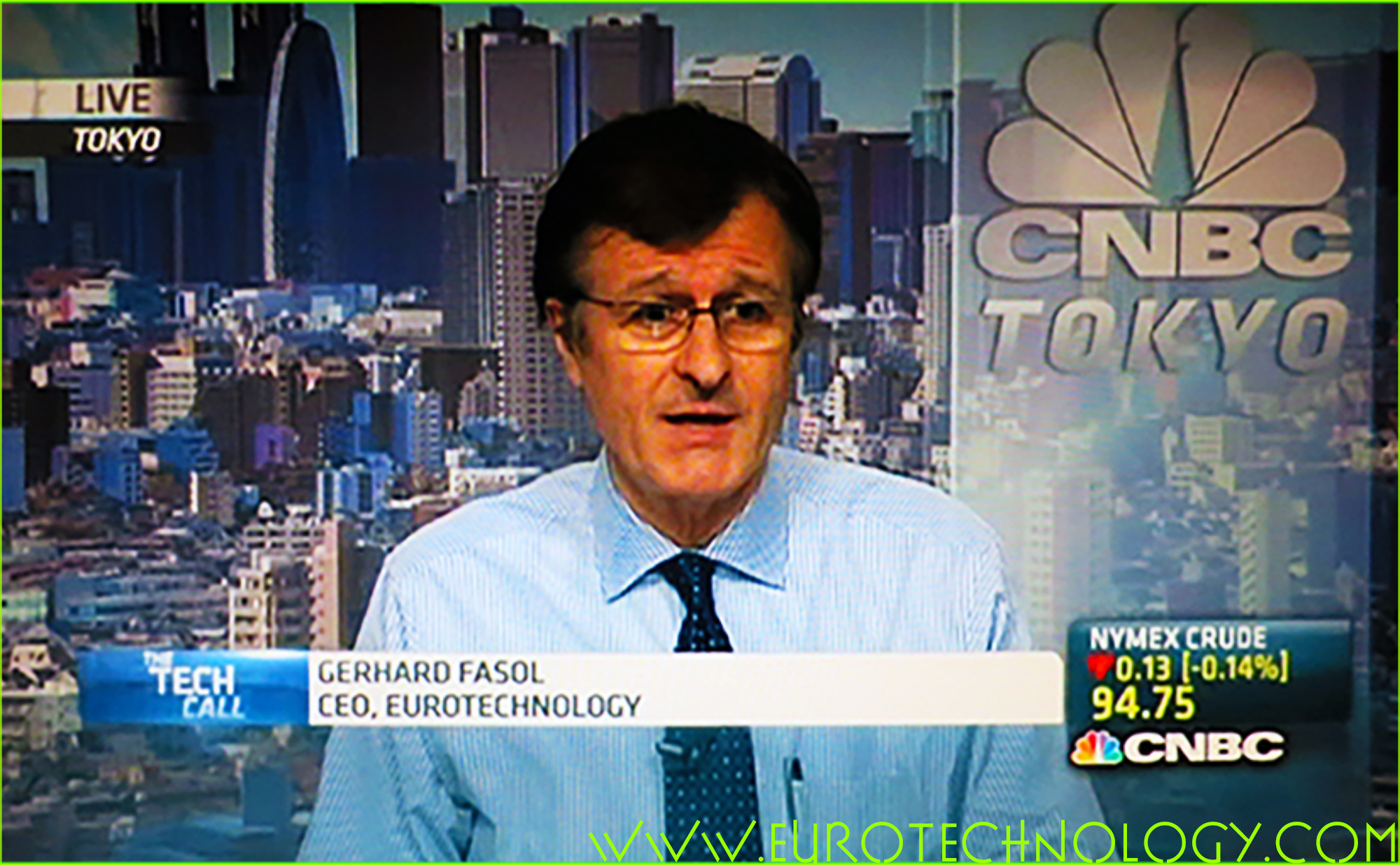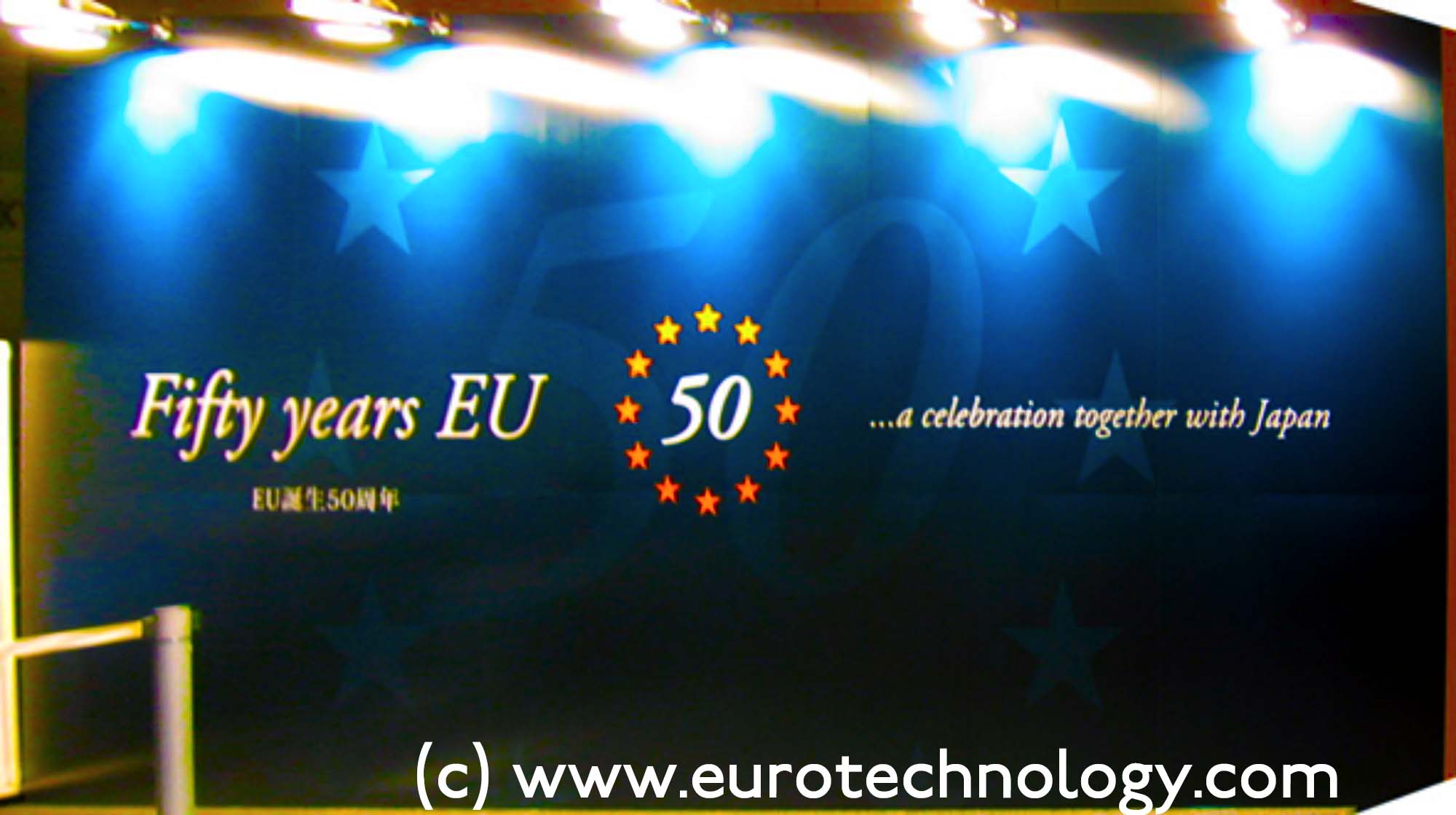Category: Economy
-
Japan Cloud computing impact and trends
Japan cloud computing impact and trends, keynote article Software eats everything, and cloud eats software… we all see a strong trend of all data and computing to move to “the cloud”, because if done well, managing data and computing in the cloud can be far cheaper than on computers and on storage that you or…
-
Cash goes mobile and electronic. First to market in Japan and then what? (TTI-Vanguard conference keynote)
The organizers of the legendary TTI-Vanguard conference series organized a conference on “Futureproofing” in Tokyo, and invited me to give a keynote on Japan’s creativity and first-to-market for many technologies and business models, and Japan’s difficulties to capture global value from this creativity, a phenomenon often called “Japan’s Galapagos syndrome“. The organizers, and particularly the…
-

More Drastic Changes Needed at Sony (CNBC TV interview)
More Drastic Changes Needed at Sony (Airtime: Thursday, May 14, 2009) Read more about SONY and Japan’s electrical industry sector in our J-ELECTRIC report (pdf file) Read more about SONY and Japan’s electrical industry sector: http://www.eurotechnology.com/store/j_electric/ Copyright (c) 2013 Eurotechnology Japan KK All Rights Reserved
-
Investor Club: What crisis? Meet some booming Japanese companies
It’s not all doom and gloom here in Japan. Nintendo’s sales and operating profits are rising 8.8% year-on-year. KDDI saw its net profits increasing 59% year on year. Yahoo Japan increases dividends by 22%-25% for 2008. Who are today’s winners in Japan’s IT industry? Gerhard Fasol will show us how and why some great Japanese…
-

50 years European Union celebration in Tokyo
50 Years European Union 50 years European Union – 50 Years Treaty of Rome Today was the 50th anniversary of the Treaty of Rome which was at the beginning of the European Union. The Treaty of Rome (Wikipedia) (“Treaty establishing the European Economic Community”) was signed on 25 March 1957 by Belgium, France, Italy, Luxembourg,…
-
Panel Discussion to 200 Japanese Executives at the Industrial Club of Japan
May 30, 2006: at the Industrial Club of Japan Panel discussion for about 200 Japanese CEOs and high level managers about the challenges of international business management. The five panelists were: James C AbbeglenAllen Miner (CEO of Sunbridge Venture Habitat, and founder of Oracle Japan) Kong Jian (China – Japan Economic Federation) Koshiro Kitazato (Chairman…
-
Briefing 30 Swedish Controllers / CFO’s of Investor AB’s portfolio companies on Japan’s telecom markets
by Gerhard Fasol April 24, 2006 was my Swedish Day: for breakfast I was invited to IKEA’s opening party for their new store in Funabashi (I met even with the global Chairman of IKEA – that he attended the opening in Funabashi shows how seriously IKEA is taken the market entry to Japan) – we…
-
Okaerinasai IKEA
Today, Monday April 24, 2006 at 7:30am, IKEA invited about 300 guests to celebrate the opening of the first 100% IKEA-owned IKEA store in Japan. We had the honor of working for IKEA – IKEA is another company that “thinks different” in so many creative ways. We wish them all the best in Japan! IKEA…
-

About Tokyo Stock Exchange Turbulence on CNBC and RedHerring
Wednesday January 18, 2006 I was interviewed live on CNBC’s “Worldwide Exchange” news program about the turbulence on the Tokyo Stock Exchange following lower than expected quarterly earning reports by Intel, Yahoo and IBM, and a sell-off of Livedoor shares. Here is a summary of what I said in the interview: Overall I am very…
